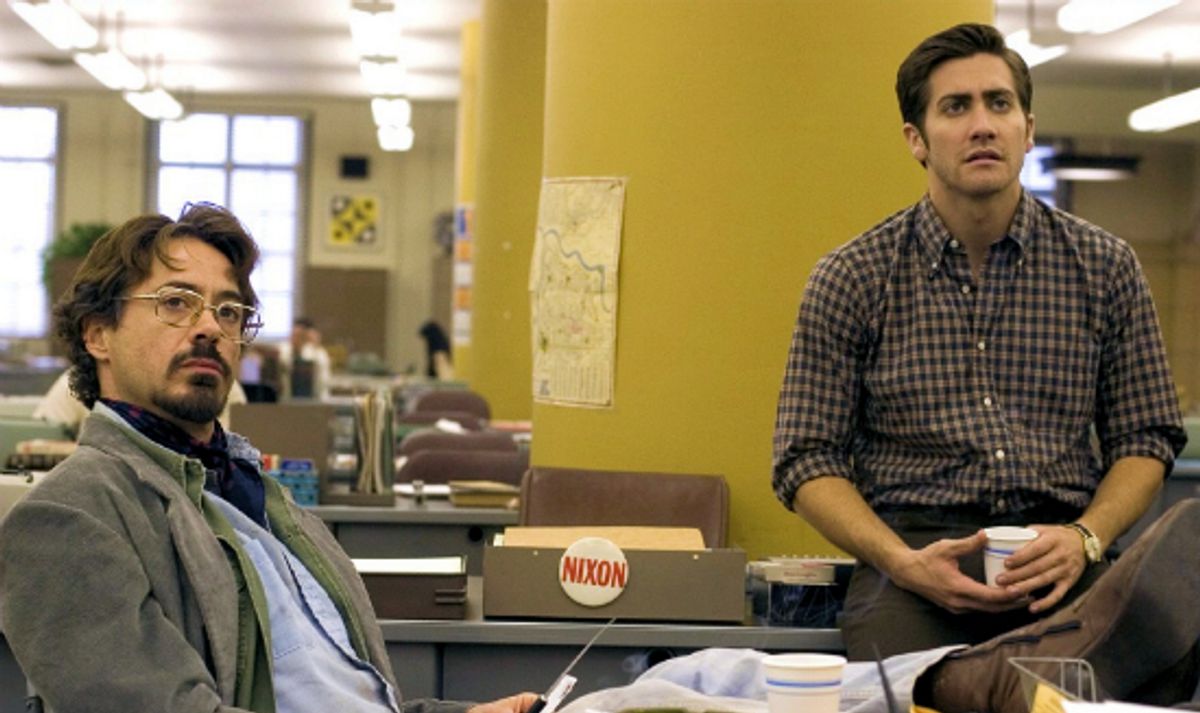 Vanity Fair’s Hollywood Blog recently ran a piece titled “Is 2013 the Greatest Year for Movies Since the Gone With the Wind Era?” in which author Bruce Handy, equivocating all the way, posited that 2013 was so packed with great movies that it rivaled classic years like 1939 and others that popped up in the 1940s, 1970s, and so on. Admittedly, he started out by saying he was using “weasel words” to hedge his bets, and he added that October is probably too soon to start assessing the year as a whole, and there’s also the strong possibility that he doesn’t so much believe in his claim’s veracity as in its power to function as shameless click-bait for a Monday-morning traffic bump. But the column raises some bigger and more troubling questions about the way we interact with movies.
Vanity Fair’s Hollywood Blog recently ran a piece titled “Is 2013 the Greatest Year for Movies Since the Gone With the Wind Era?” in which author Bruce Handy, equivocating all the way, posited that 2013 was so packed with great movies that it rivaled classic years like 1939 and others that popped up in the 1940s, 1970s, and so on. Admittedly, he started out by saying he was using “weasel words” to hedge his bets, and he added that October is probably too soon to start assessing the year as a whole, and there’s also the strong possibility that he doesn’t so much believe in his claim’s veracity as in its power to function as shameless click-bait for a Monday-morning traffic bump. But the column raises some bigger and more troubling questions about the way we interact with movies.
It’s understandable to want to bring order to something as chaotic and subjective as movie-watching. Thinking about movies in terms of calendar years can be a good way to organize them, and historical demarcations also make it possible to observe trends in content, style, which directors or actors are getting more work, and so on. This can be a great way to get a handle on things because it lets you ask the question, “What was happening in that year?” So, e.g., when you decide to take a big-picture view of 2007, you can talk about about the number of films from upper-level directors that dealt with the dark underbelly of American culture and economy: Fincher’s Zodiac, Paul Thomas Anderson’s There Will Be Blood, the Coens’ No Country for Old Men, Gilroy’s Michael Clayton. It’s just one of the many ways to read film history and draw larger meanings from movies.
The problem, though, is when “Here’s what a certain year looked like” transforms into “Here’s why this year was better than others.” Instead of talking about movies, good or bad, we start to rank them and pit them against each other in an arbitrary contest. This is the same senseless ordering that happens with year-end awards, only on a much bigger scale. In an attempt to gain some kind of control over the dozens or hundreds of movies available in a year, we impose rankings on them. And it’s hazardous to our movie-watching health. Not just because it imposes artificial constraints on things, but because it can make it easy to miss the real joy of watching movies in the first place.
Part of the issue is that movies are meant to stand on their own. Yes, it’s entirely possible to draw trend lines like the one I described above, but those films don’t exist solely as plot points on that particular graph. They’re all individual works, and grouping them like that is just one of many ways to look at what’s happening in culture. Zodiac doesn’t need corroborating films to become impressive; it’s a daring, gorgeous movie all on its own. Film isn’t a forest, it’s a bunch of trees. You have to be able to see each one for what it is.
But the bigger issue is that film releases are chronological, but film experience is autobiographical. In other words, where and when you see a film for the first time — or the second, or the tenth — will mean more to you as a viewer than the year it was sent out to theaters. It’s one thing to think about a year’s worth of a movies as a historical or critical exercise, but that’s hardly the beginning and end of how movies affect us. It’s not even close. Art does not exist solely with an arbitrarily determined 12-month period. I don’t think of The Godfather just in terms of its profile in 1970s American cinema; I think about how I was in high school the first time I saw it, in the mid-1990s, and how it was one of the movies my dad wanted me to see, and how we bonded over those movies as I grew up. Where is it written that you’re going to see a movie in its year of original release, and that that should be your primary way to judge it? If I see a great movie this year that was released in 2011, I don’t think of myself as time traveling. That movie becomes, in a way, a great 2013 movie.
Think about the movies you’ve seen this year that came out last year, or the year before, or ten years ago. Maybe you catch something on cable, or maybe you stumble upon something after shuffling aimlessly through Netflix. Who knows. But a great movie from some random year is never just that. They’re all different, and they all hit us at different times and places. So yes, a lot of great movies came out in 1939, ones that we still watch today. But there’s nothing special about that year, and if those movies had all come out over the course of five of ten years, we’d love them just the same. It’s never about the calendar.



Shares